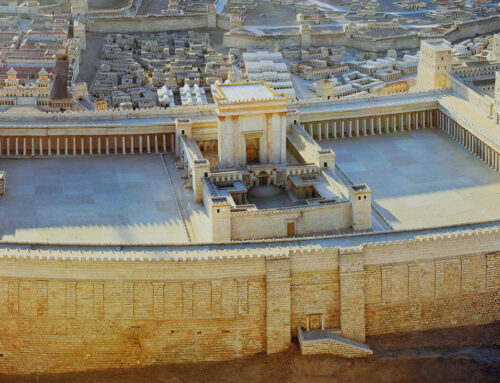God is so full of greatness, grandeur, and glory that there are not enough words or depth in the English language to begin to describe His majesty.
In Psalm 29, David attempts the impossible by declaring:
“Ascribe to Yahweh, O sons of the mighty, ascribe to Yahweh glory and strength. Ascribe to Yahweh the glory of His name; worship Yahweh in the splendor of holiness. The voice of Yahweh is upon the waters; the God of glory thunders, Yahweh is over many waters. The voice of Yahweh is powerful, the voice of Yahweh is full of splendor.“
While the entire psalm is profound, notice how David highlights and focuses on the voice of the Lord—He describes the voice of Yahweh as powerful, full of splendor, and over the waters.
David doesn’t merely focus on the power and position of God; he draws our attention to God’s voice.
Consider this … if God’s voice is so magnificent, monumental, and majestic, how much more grand is God Himself?
Paul says something similar in Ephesians 1:19 – [I pray you would know] “what is the surpassing greatness of His power toward us who believe according to the working of the might of His strength …”
In trying to describe God’s indescribable power, Paul uses two superlatives and four different Greek words for power:
- surpassing (hyperballō) – to go beyond, surpass, outdo, exceed; where we get the word “hyperbole” (in this case it’s not an exaggeration)
- greatness (megethos) – extreme greatness or extent
- power (dynamis) – power, might, strength
- working (energeia) – working, operation, action
- might (kratos) – power, dominion, authority, rule, sovereignty
- strength (ischys) – the might, power, strength, or resource to do something
It is as if Paul reached into his language and used every option he had and yet came to the conclusion that God’s power is so immense and incredible that there are not enough words to adequately describe His character.
Like David talking about the splendor of God by mentioning His voice, Paul describes God’s immensity by focusing on His power.
Imagine growing up in the Sahara desert without any access or knowledge beyond it. If someone came up to you and asked you what the word “ocean” meant, how would you be able to describe it? If your experience with water was the size of cupfuls, how could your mind conceive fish, whales, sharks, coral, squid, icebergs, islands, and all the amazing realities of the deep?
If you were to try to describe the immensity of the oceans by a single cup of water, it would be impossible.
God is like that (but much more grand).
God is indescribable, so David mentions His voice and Paul His power. Again, if Yahweh’s voice is full of power and splendor, how much more Yahweh Himself? If His power is indescribable, how much more is the God behind the power?
What if we’d realize that even in 10 billion-gazillion years from now into eternity, we will still be on the tippy-top of the shaved ice of the iceberg of all there is to know of the fullness of God. What a tremendous reality.
As David wrote, let us “Ascribe (acknowledge, honor, give, attribute) to Yahweh the glory of His name; worship Yahweh in the splendor of holiness” (Psalm 29:2).
Let us stand in awe and worship Him in the greatness, grandeur, and glory of who He is.
Disclosure of Material Connection: Some of the links in the post above are “affiliate links.” This means if you click on the link and purchase the item, deeperChristian will receive an affiliate commission (with no additional cost to you). It is a great way to support the work and ministry of deeperChristian. Regardless, we only recommend products or services we use personally and believe will add value to our readers. We are disclosing this in accordance with the Federal Trade Commission’s 16 CFR, Part 255: “Guides Concerning the Use of Endorsements and Testimonials in Advertising.”












